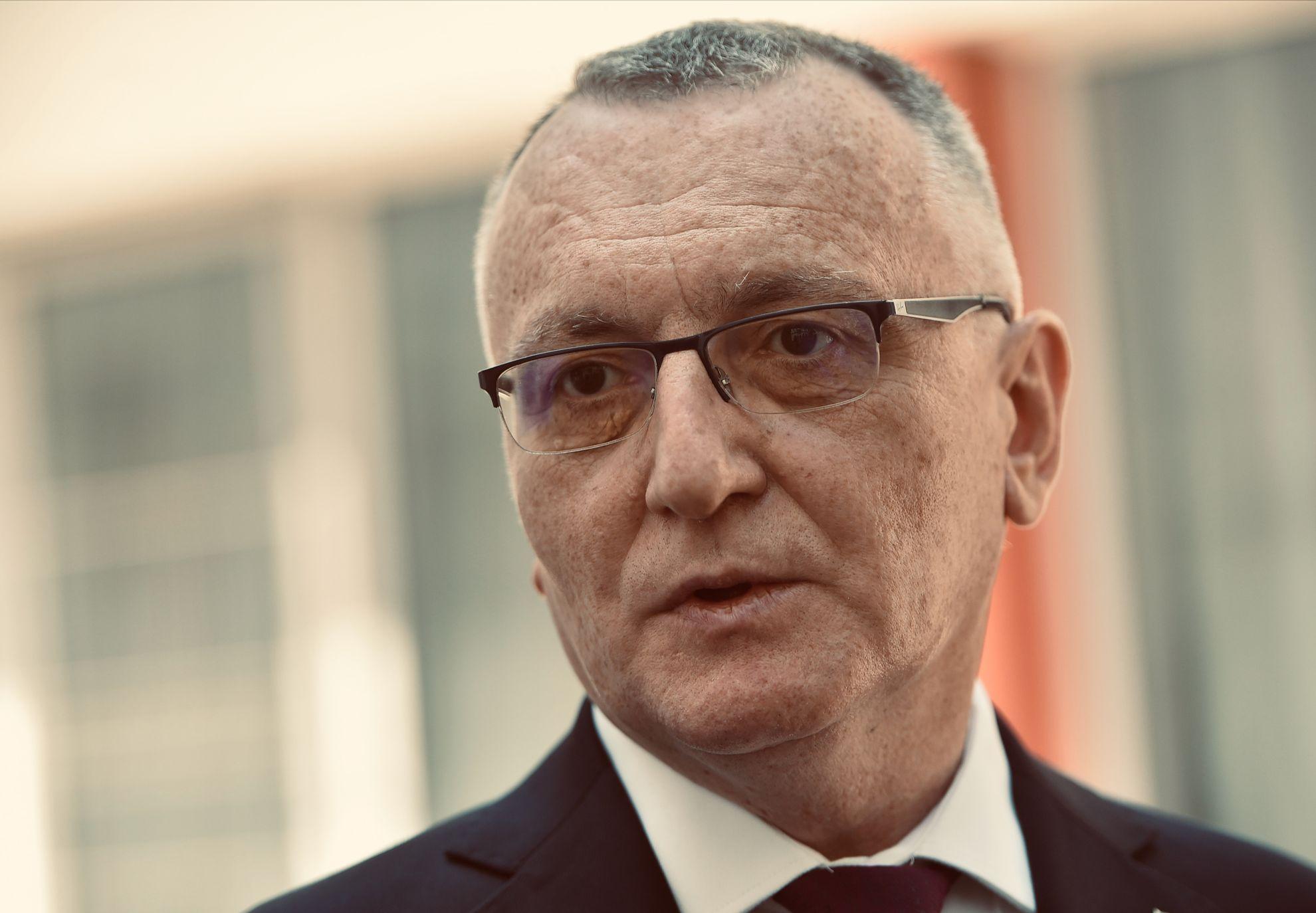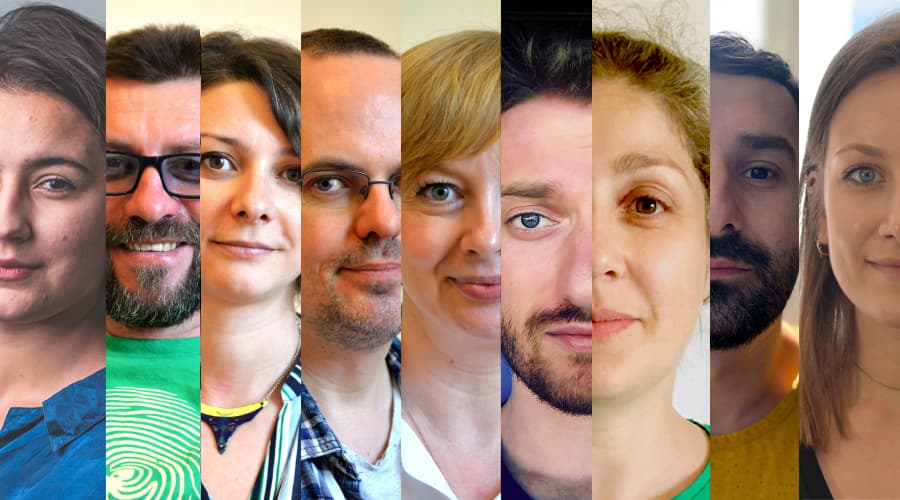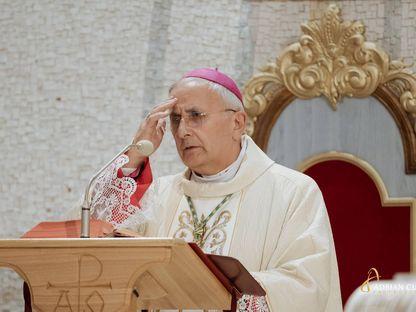Romanian Plagiarism: Concerns and Proposals. Open Letter Addressed to all Romanian Universities and to the Minister of Education
English Section
19/07/2022

Sorin Cîmpeanu, the current Education Minister, was promoted to a government position in 2014 by the former prime minister Victor Ponta, who plagiarized his PhD thesis. During his first days as an cabinet member, Cîmpeanu proposed an emergency ordinance allowing doctors to voluntarily renounce their doctoral degrees. Currently, he serves as a minister in a cabined led by prime minister Nicolae Ciucă, who blocked in court the analysis of his PhD thesis by CNATDCU, a government authority.
As professors and researchers at various universities and scholarly institutions in North America and Western Europe, we observe with deep concern and increasing disappointment both the aggressive intervention of politics into academic ethics through the newly implemented legal protection of plagiarism and plagiarists, and, with a few notable exceptions, the absence of any reaction from those directly affected by the current state of things – the Minister of Education and Romanian universities. This is a dangerous phenomenon that is detrimental to the entire educational system and, in consequence, to the entire Romanian society.
In the short term, the principal victims are those honest Romanian scholars who attempt to publish their work in internationally recognized academic journals and with internationally recognized publishers. Lately, Romania has acquired the undesirable reputation of a country in which plagiarism is protected by the state and, as such, therefore the research of Romanian academics is ignored almost by default, as inherently suspicious. This situation is unfair to honest scholars, and it is unfair for the whole of society.
When public opinion does not entirely ignore the phenomenon, its attention is focused almost exclusively on the cases of plagiarism involving public figures in office – prime ministers, cabinet ministers, members of the judiciary – and only on doctoral dissertations. This to a certain extent is understandable, but it means that lesser-known names, in particular from Romanian universities, fall under the radar. It also means that other blatant cases of plagiarism in academic journals, monographs, and book chapters are mostly ignored, even though they are equally outrageous.
We believe that draining this ethical swamp requires a multi-faceted approach, with a preemptive and a reparatory component, as well as short-term and long-term solutions. What follows are just a few suggestions and examples, intended as a starting point to a much-needed conversation.
For example, a preemptive approach easy to implement in short term could be for all major universities to encourage and assist their doctoral students to have as co-advisor a reputed foreign scholar, as some Romanian universities have just started doing, although mostly sporadically. Besides benefitting from a new level of expertise, such practice would encourage honest research endeavors and would ensure a higher quality of academic work. In the long run, the universities systematically implementing this strategy will benefit from their increased reputation, both nationally and internationally.
As for the reparative approach, which presupposes some form of penalty in case of proven cases of plagiarism, a short-term solution could entail, at its most basic, a public-facing reaction from the Romanian universities in all cases of blatant departure from the standards of academic ethics. Even as of now the Romanian universities cannot nullify plagiarized doctoral dissertations, which are legally protected (!), they still have the ability to penalize all other cases of plagiarism in academic journals, monographs, and book chapters, refusing or cancelling publication of such plagiarized works and firing or breaking contracts with those guilty of plagiarism. A public policy of zero-tolerance would send a powerful message that would echo beyond the academic world. For example, the New Europe College and Bucharest University Press have already acknowledged cases of plagiarism in their published works and retracted them, publicly announcing the reason. For all Romanian academic journals and publishing houses such an attitude can only enhance their reputation and, implicitly in the long run, the quality of their publications.
Needless to say, the long-term structural solution can only be reached by modifying the legislation, which will be possible only if universities, academic journals, and publishing houses would succeed in stirring up a wave of public indignation against the current laws and practices. We believe that only the strong pressure from public opinion could persuade Romanian politicians to renounce this deeply corrupted system, and to vote for a new legislation, so necessary for the healing not only of academic life but of the whole of Romanian society.
A change of public opinion, crucial for all long-term changes, will be accomplished neither with a defeatist ‘this-is-a-lost-cause’ attitude, nor with behind-the-scenes heroisms. We invite all who believe in the principles and ideas enumerated above to publicly join us by co-signing this letter, using this link.
Mulți ne citesc, puțini ne susțin. Fără ajutorul tău, nu putem continua să scriem astfel de articole. Cu doar 5 euro pe lună ne poți ajuta mai mult decât crezi și poți face diferența chiar acum!
Read the Romanian version of the letter here.
— Anna Abalkina, Research Fellow, Freie Universität Berlin, Germany
— John Arblaster, Assistant Professor of the History of Spirituality in the Low Countries, Ruusbroec Institute, University of Antwerp, Belgium
— Alexander Baumgarten, Professor of History of Medieval Philosophy, Babeș-Bolyai University of Cluj
— Monica Brinzei, Research Director, Deputy Director of IRHT, CNRS, France
Predator in Robes: The Diocese of Iași and the Vatican Buried a Sexual Assault Committed by a Catholic Priest Against a Minor in Bacău, Failing to Alert Prosecutors
A Roman Catholic priest abused a 13-year-old girl in the parish where he served in Bacău County: the bishop of Iași knew about it, sent the case to the Vatican, and applied canonical sanctions, but did not notify the authorities, who only intervened later and sentenced him to prison.
— Monica Ciobanu, Professor of Criminal Justice, SUNY Plattsburgh, USA
Revista Pressei
Un newsletter pentru cititori curioși și inteligenți.Sunt curios
Un newsletter pentru cititori curioși și inteligenți.
Sunt curios
— Roland Clark, Reader in Modern European History, Department of History, University of Liverpool, UK
— Daniel David, Rector, Babeș-Bolyai University of Cluj
— Michael V. Dougherty, Professor of Philosophy, Ohio Dominican University, USA
— Dragoș Duicu, Maître de conférences, Faculté de Philosophie, Institut Catholique de Toulouse, France
— Russell L. Friedman, Professor, Institute of Philosophy, KU Leuven, Belgium
— Alin Fumurescu, Associate Professor, Department of Political Science, University of Houston, Fellow Murphy Institute, USA
— Ana Fumurescu, Researcher, Department of History, University of Pittsburgh, USA
— Guy Guldentops, Researcher, University of Cologne, Germany
— Pernille Harsting, formerly Associate Professor of Rhetoric, Örebro University, Sweden
— Rudolf B. Hein, Professor of Moral Theology, PTH Münster, Germany
— Tincuța Heinzel, Senior Lecturer, School of Design and Creative Arts, Loughborough University, UK
— Joshua P. Hochschild, Professor of Philosophy, Mount St. Mary’s University, Maryland, USA
— Robert T. Ives, Associate Professor of Special Education, founder of the „Research in Romania” program, University of Nevada, Reno, USA
— Andrei Manolescu, Professor, Department of Engineering, Reykjavik University, Iceland
— Gheorghe Pașcalău, Postdoctoral Researcher, Institute of Philosophy, KU Leuven, Belgium
— Jenny Pelletier, Postdoctoral Researcher, Department of Philosophy, Linguistics and Theory of Science, University of Gothenburg, Sweden
— Martin Pickavé, Professor, Department of Philosophy, University of Toronto, Canada
— Giorgio Pini, Professor, Philosophy Department, Fordham University, USA
— Andrei Pleșu, President, Foundation New Europe College, Bucharest
— Marian Popescu, Director onorific, Centrul de Acțiune, Resurse, Forme pentru Integritate Academică (CARFIA), Universitatea din București
— Mihail Popescu, Professor of Medical Informatics, University of Missouri, Columbia, USA
— Cristian Preda, Decan, Facultatea de Științe Politice, Universitatea din București
— Chris Schabel, Professor, University of Cyprus/CNRS-Paris, Cyprus/France
— Anna Marisa Schoen, Postdoctoral Fellow, Department of Political Science, Duke University, USA
— Claudia Șerban, Maître de conférences, Department of Philosophy, Université Toulouse Jean Jaurès, France
— Carlos Steel, Professor Emeritus, Institute of Philosophy, KU Leuven, Belgium
— Cătălin Ștefănescu, Professorial Lecturer, Department of Finance and Real Estate, Kogod School of Business, American University, USA
— Irina Ștefănescu, Principal Economist at the Federal Reserve Board, Washington D.C., USA
— Tudor D. Stănescu, Professor, Department of Physics and Astronomy, University of West Virginia, USA
— Emilia Șercan, Lector, Facultatea de Jurnalism și Științele Comunicării, Universitatea din București
— Mark Thakkar, Honorary Research Fellow, University of St Andrews, UK
— Anya Topolski, Associate Professor in Ethics and Political Philosophy, Radboud University, The Netherlands
— Anca Vasiliu, Directrice de recherche, CNRS/Université de Sorbonne, France
— Debora Weber-Wulff, Professor, University of Applied Sciences HTW Berlin, Germany

Avem nevoie de ajutorul tău!
Mulți ne citesc, puțini ne susțin. Asta e realitatea. Dar jurnalismul independent și de serviciu public nu se face cu aer, nici cu încurajări, și mai ales nici cu bani de la partide, politicieni sau industriile care creează dependență. Se face, în primul rând, cu bani de la cititori, adică de cei care sunt informați corect, cu mari eforturi, de puținii jurnaliști corecți care au mai rămas în România.
De aceea, este vital pentru noi să fim susținuți de cititorii noștri.
Dacă ne susții cu o sumă mică pe lună sau prin redirecționarea a 3.5% din impozitul tău pe venit, noi vom putea să-ți oferim în continuare jurnalism independent, onest, care merge în profunzime, să ne continuăm lupta contra corupției, plagiatelor, dezinformării, poluării, să facem reportaje imersive despre România reală și să scriem despre oamenii care o transformă în bine. Să dăm zgomotul la o parte și să-ți arătăm ce merită cu adevărat știut din ce se întâmplă în jur.
Ne poți ajuta chiar acum. Orice sumă contează, dar faptul că devii și rămâi abonat PressOne face toată diferența. Poți folosi direct caseta de mai jos sau accesa pagina Susține pentru alte modalități în care ne poți sprijini.
Vrei să ne ajuți? Orice sumă contează.
Share this

